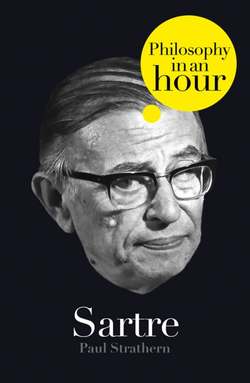Читать книгу Sartre: Philosophy in an Hour - Paul Strathern - Страница 4
Introduction
ОглавлениеJean-Paul Sartre was the most popular philosopher in history – during his lifetime. His work was known to students, intellectuals, revolutionaries, and even the general reading public the world over.
Two main reasons account for this unprecedented popularity, neither of which has to do with Sartre’s abilities as a philosopher. First, he became the spokesman for existentialism at the opportune moment – when this philosophy filled the spiritual gap left amidst the ruins of Europe, in the aftermath of World War II. And, second, his later adoption of a revolutionary stance against authority struck a chord in the era of Che Guevara, worldwide student unrest, and sentimental sympathy for the Cultural Revolution in Communist China. Where politics was concerned, Sartre wrote about almost everything. Alas, events proved him wrong about almost everything.
Sartre’s earlier philosophy is another matter. He may not have been the first existentialist, but he was the first publicly to accept this label. He was also one of its most able exponents. Sartre’s ability to develop philosophical ideas, and their implications, remained unrivaled in the twentieth century. But this was done with imaginative brilliance rather than analytic rigour. As a result, he was dismissed with contempt by many orthodox thinkers, who claimed that neither he nor existentialism had anything to do with ‘real’ philosophy.
Existentialism was the philosophy that showed the ultimate freedom of the individual, succinctly encapsulated by the night-club singer Juliette Greco: ‘Whatever you do, you become.’ Existentialism could be as shallow as this and (in the hands of Sartre) as profound as any contemporary philosophy. It was the exciting and personally involving ‘philosophy of action’ – or, to its critics, the ultimate theory of introspection, bordering on solipsism (the belief that only I exist). Yet all are agreed that in Sartre’s hands existentialism became a revolt against the European bourgeois values that lay in ruins after World War II. The bourgeoisie (essentially the middle class) came to stand for all that existentialism was not: it was impossible to be an existentialist and a bourgeois.
